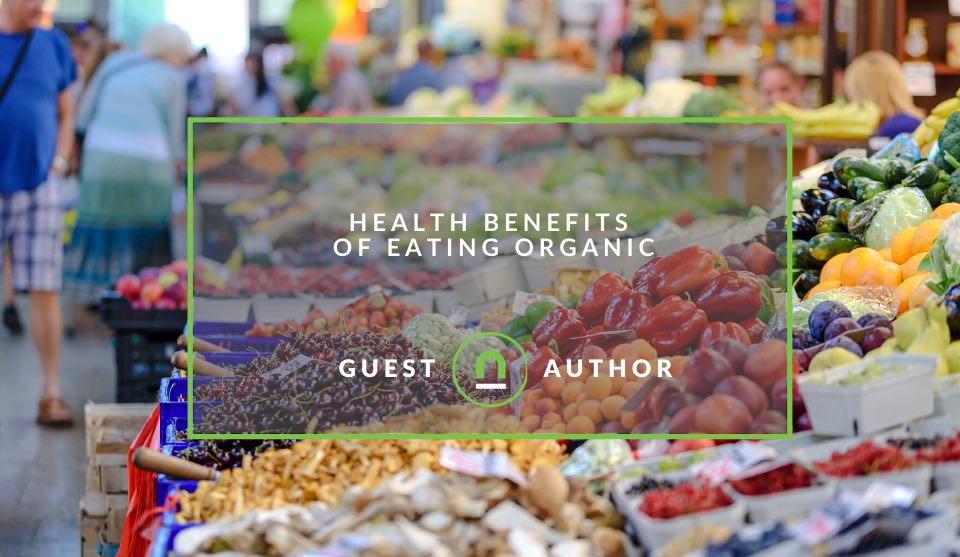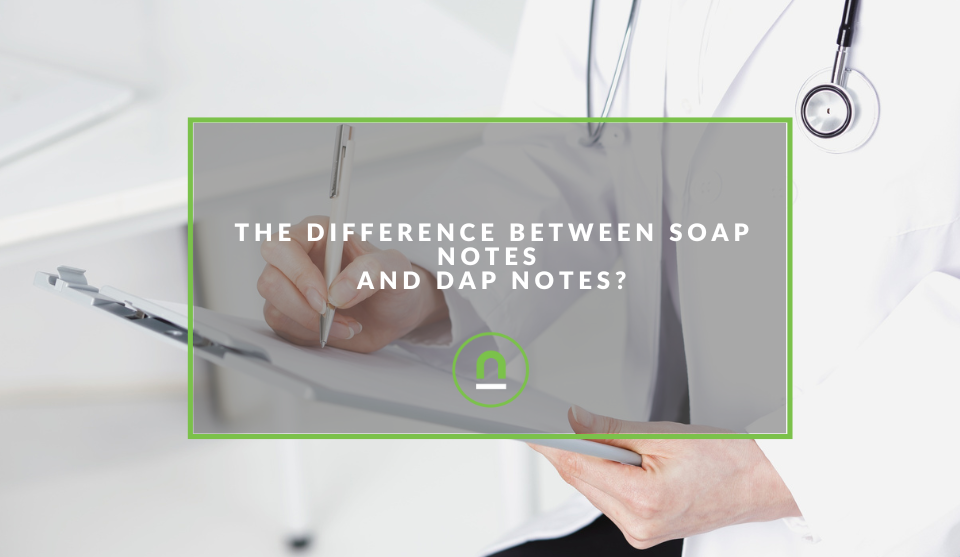Recent posts

nichemarket Advice
Why Video Production Companies Still Outshine AI
24 December 2025

Press Releases
Where You Can Find International Remote Jobs For South Africans
23 December 2025

Money Talks
Why Cross-Border Payments Are Slow, Tedious, and Expensive
17 December 2025

Money Talks
The Rise Of Trading Platforms In South Africa
16 December 2025
Popular posts
Extravaganza
Trending Music Hashtags To Get Your Posts Noticed
24 August 2018
Geek Chic
How To Fix iPhone/iPad Only Charging In Certain Positions
05 July 2020
Extravaganza
Trending Wedding Hashtags To Get Your Posts Noticed
18 September 2018
Money Talks
How To Find Coupons & Vouchers Online In South Africa
28 March 2019
The Health Benefits Of Eating Organic
02 January 2020 | 0 comments | Posted by Linda Mkhwanazi in Masterchefs
In the past few years, nothing has buzzed more than the issue of eating healthy. With the changes in food production that have taken place over the years, many people want to know which option yields the healthiest of life.
First things first, let us define what this "organic" means.
The word organic refers to crops that are grown without the use of synthetic pesticides, bioengineered genes, petroleum-based fertilisers and sewage sludge-based fertilisers.
[1]Organic animal farming will mean that the livestock is not given antibiotics and growth hormones. So in the purest sense, organic food is food that is produced and sold to the masses from seed to fruit, in its most natural form with nothing added during its growth.
The benefits of eating such food are numerous, for humanity and the environment. In this first part, we will look at the benefits for human beings and in the second part, the latter.
Say no to GMOs
Probably my favourite is that organic food is free from bioengineered genes (Which makes it non-GMO*) and is very nutritious.
Dr Allyson Mitchell had this to say
"With organic methods, the nitrogen present in the soil and released slowly, and therefore plants grow at a normal rate, with their nutrients in balance. Vegetables fertilised with conventional fertilisers proliferate and allocate less energy to develop nutrients."
[2]Nothing could be more accurate! Growing evidence supports this view through studies conducted worldwide. Organic food proves to be more abundant in antioxidants, phosphorus, zinc, magnesium, iron and many others.
The reason behind this is because these plants are less exposed to nitrates, toxins and pesticide residues that are used on conventionally produced food.
"Our bodies are built up from the food we eat. There is a constant breaking down of the tissues of the body; every movement of every organ involves waste, and this is repaired from our food. Each organ of the body requires its share of nutrition. These foods, prepared naturally and straightforwardly as possible, are the most healthful and nourishing."
The need for rich nutrition in our bodies is evident
[3]A point to ponder upon is that our bodies are natural and they were designed to digest and absorb only that which is natural. When the body is thus fed, the digestive system finds no difficulty in breaking down ingested food and has no need to digest unnecessary additives, flavourants preservatives.
By choosing organic food, public health is also put in far fewer risks. This is true for both peasant and commercial farmers. It is because when no pesticides and fertilisers are used, there is no risk of contaminating diseases that are usually spread by toxins that remain the soil on which they work. For peasant farmers, this also protects the young children as they also play in this soil.
Moreover, the discontinuation of the use of any chemicals, pesticides or fertilisers also means that there is less contamination of the air which farmers breathe, less contamination of the water reservoirs, no pesticide drifts, fewer child sicknesses [4] and so on.
There have been quite several reported cases of public health risks on farms that are not organic in their production. There are many more unreported incidences due to things like health care costs, where such contaminations have disrupted farmer health.
[5]Although arguments have been held here and there, what remains is that foreign chemicals are bad news for the human body and it is of a great benefit to eating whatever foodstuff that does not contain it. Organic food has also proved to have a longer shelf life; that is, it stays fresher for longer.
This affects us positively because fresh food is filling and remains in the stomach for longer. It is excellent news more especially for those intending to lose weight (I see you smiling ladies) because this means that you tend to eat less and are not prone to snacking all day long and piling on calories. You tend to consume fewer calories!
Going MSG free
To further explain why inorganic foods tend to leave us feeling hungry is the discovery that sugar substitutes, MSG* and other additives trigger hunger mechanisms chemically, which means you are more likely to overeat and bring along many other complications.
There are so many advantages to eating organic, we could finish a whole magazine on this topic, but as we close off, there are a few significant benefits to consider regarding the health of humanity seriously.
Improve resistance against preventable disease
Due to the natural manner in which they are in, organic foods prevent some diseases in the human body; these include certain cancers, cardiovascular diseases, neurodegenerative diseases, clogged arteries, and so on.
These diseases are sometimes caused by the heavy fat content and unnatural sugars that do not digest properly, leading to a clogged system and therefore disrupting the proper functioning of every body part.
Good habits tend to have a snowball effect
Eating organic also helps strengthen the immune system because all the natural nutrients and vitamins are absorbed in the body and feed all the right places, leading to fewer cases of sickness each year. When illness does arise, there is less dependence on medicine to heal. A rising problem globally is that of insomnia.
Much as we can attribute that to stress, continuous thinking, technology and all the other credible reasons, one of the causes is eating unnatural/processed food. Organic food gives better sleep because the digestive system and the bloodstream are not overworked.
Digestion and absorption of nutrients are smooth and takes less time, which guarantees the individual more sound sleep as there is no hard labour going on while trying to get some rest.
This, in turn, means that the 6-8 hours of sleep becomes a much-needed rest, and the next morning is not the usual horror but rather an energetic one. And we all know, a good morning guarantees a very productive day and who knows, you might have an extra hour of the gym after work and time to play around with the kids and husband!
Only to pull out some real-life proof, I'll do a little narrative about my transition to a plant-based organic diet. Back in 2011, I was 17 years of age, weighing at 95kg(209lbs), and I had terrible acne on my face that has lasted for about four years. My life was a sedentary one, eating quite a lot of processed food, and my excuse was always.
"Organic stuff is too expensive."
As the months went by, I daily felt very heavy, and my movement from point A to B was now becoming altered in the sense that, I could only walk short distances.
After a routine visit to the GP, he said to me.
"Stop eating and drinking acidic foods and watch your skin, see if there won't be any difference over time."
What?!
"He must be kidding me! No flavoured water, no Sprite, I mean, I'm even taking the healthier choice of Coke zero!"
Well, I decided to try, though I was very sceptical about such a restrictive diet.
Need I say more?
It took about six months, and I was already reaping the results of his advice. My skin had no blemishes, no more pimples and the A-zone had less oil. In the process of all that, due to the enormously painful period pains I suffered from, some vegan lady friend said to me.
"Ever tried eating less processed and more natural/organic food? If you want to lose weight and be healthier, try that, it helped me a lot with being overweight."
Here was another one!
From one lifestyle to the other
So I went organic since that time, bit by bit, substituting each food item for a more natural one. I went from 95kg at 17 years of age, and I'm currently 23 weighing 74kg, and that's about 21kg down. I've never felt so amazing in my life.
My bowel movements are more regular, my skin glows and looks healthy, period pains gone and heavy flow has been reduced by more than half, I now run races, and I'm currently a 15K runner gearing up for a half marathon.
What I have gained from eating organic is fantastic, and I realise that I don't need to tax myself at the gym, doing too much but not getting any desired results. All I do is run, do some strength training and eat well. No more counting calories!
It's all about the benefits
Speaking about these benefits is not hypothetical to me at all, I have reaped tremendous results, and I have seen my body move from totally sickly to healthier.
Nothing beats eating food in its most natural state for me because that food becomes a healing medicine for the body itself and provides protection from a whole load of diseases. It doesn't mean you're not going to get sick, though!
It only means that it will not happen as often, and you think it will occur due to nature, not lifestyle.
Stay tuned for more
In part 2 of this article, we shall explore the benefits of eating organic with regards to the environment. It is important to look after ourselves and stay healthy, but also essential to look after the environment that provides us with all we need.
References
- 1 - www.eatingwell.com/food_news_origins/greensustainable/organic_or_not_is_organic_produce_healthier_than_coventional
- 2 - Associate Professor in Food Science and Technology at the University of California
- 3 - Ellen G White, The Ministry of Healing 296
- 4 - www.mindfully.org/Pesticide/Pre-school-Exposed-Mexico-Gillette.htm
- 5 - www.beyondpesticides.org/programs/organic-agriculture/whyorganic/health-benefits
Tell us your story
Would you like to write for nichemarket just like Linda has? Find out how to submit a guest post and when you're ready, you can contact us.
Are you looking to promote your business?
South African food and catering businesses can create your free business listing on nichemarket. The more information you provide about your business, the easier it will be for your customers to find you online.
Registering with nichemarket is easy; all you will need to do is head over to our sign up form and follow the instructions. If you require a more detailed guide on how to create your profile or your listing, then we highly recommend you check out the following articles.
Recommended reading
If you enjoyed this post and have time to spare why not check out these related posts and dive deeper down the rabbit hole that is the eating healthy.
- Trending Foodie Hashtags to add some Flavour to your posts
- Why Dunkin Donuts & Baskin Robbins Failed In South Africa
- Your Guide To Meal Delivery Services In South Africa
- 13 Health Benefits Of Ginger
- The 14 Health Benefits of Drinking Gin
- 10 Benefits of Hemp Seed Oil for Great Health
Tags: Food , Diet, Health , Guest Post
You might also like
The Difference Between SOAP Notes and DAP Notes
02 December 2025
Posted by Che Kohler in Doctors Orders
A look at SOAP format, which remains the classic choice for healthcare professionals, while DAP notes offer more flexibility for mental health docume...
Read moreWhy Video Production Companies Still Outshine AI
24 December 2025
Posted by Che Kohler in nichemarket Advice
A review of traditional video production versus generative AI videos and why businesses might be tempted to go the cheaper route, but it might cost y...
Read more{{comment.sUserName}}
{{comment.iDayLastEdit}} day ago
{{comment.iDayLastEdit}} days ago
 {{blogcategory.sCategoryName}}
{{blogcategory.sCategoryName}}

